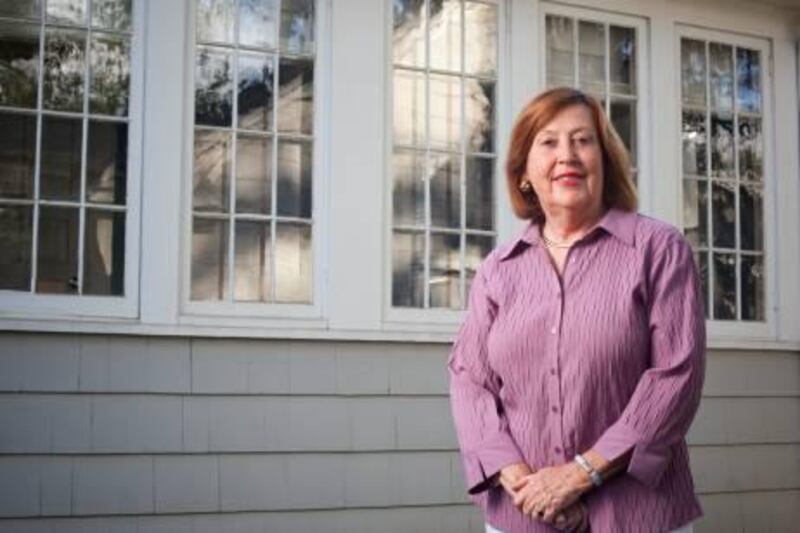ABU DHABI // There is good reason the characters in Tina Lesher's novel The Abaya Chronicles strike a chord with the women of the country.
The US academic's book, which was released last year, explores the progress made by Emirati women in the years since the discovery of oil in the UAE.
Ms Lesher wrote the novel after talking with the women of Abu Dhabi when she was a Fulbright scholar in the capital in 2006 and 2007.
"During that time I interviewed lots of Emirati women about the changes in their lives as a result of the discovery of oil," she says. "I kept a journal of all of them: students, young women operating their own businesses, sheikhas from the Royal Family …"
The professor of journalism at William Paterson University says her initial plan was to return to the US and make presentations about Abu Dhabi women and their life as she saw it.
"But in 2009, some of my students visited me and said I should convert it into a novel," Ms Lesher says.
The Abaya Chronicles tells the story of women from the perspective of a fictional character, 60-year-old Farah Abdullah Al Matari.
Khulood Al Muhairi, 23, found some personal parallels in The Abaya Chronicles. The book's main characters lead opulent lifestyles but also have a determination to succeed and achieve independence.
"The book ends with the women trying to do something for themselves and one of them starts a cake business," said Ms Al Muhairi. "I am working tirelessly to get my cookie business off the ground."
She says she is grateful for the author's depiction of a progressive society.
"The message is clear: that girls have to look out for themselves and choose wisely before getting married," Ms Al Muhairi says. "The other part is that we are capable of pursuing education and having a successful career."
Mariam Nuaimi, 25, has yet to read the book, but she has heard the buzz. As a student of media, she welcomes the idea that Ms Lesher's novel confronts the stereotypes with which Arab women are burdened.
"The general understanding is that women are the weaker link, suppressed, and are only there to be housewives," Ms Nuaimi says.
She says that on a recent trip to Scotland with a group of Emirati women, people were taken aback by their aspirations.
"They were shocked to see that we are pursuing programmes in media, politics, archaeology … and that impressed them," Ms Nuaimi says.
But there are parts of the novel Ms Al Muhairi feels may have stretched the limits of creative licence.
"I do not totally agree with the way she has portrayed the desire of young women to seek grooms from other countries," she says. "Many women would still opt to marry an Emirati."
Ms Lesher says she expects negative feedback about some points she raises in the book.
"I did interview a lot of single women who said they find it hard to limit their choices of a spouse to Emiratis," she says.
"That is why the country has a growing number of single, professional, educated women. But in the end, this is a novel."
Next month, Ms Lesher will receive an award for the book from the National Federation of Press Women. She says she considers the work to be an educational novel.
"Readers say they have learnt a lot about the Emirates," she says. "They are usually surprised by the freedom women have in the UAE and some who know very little are shocked that they are allowed to drive."






